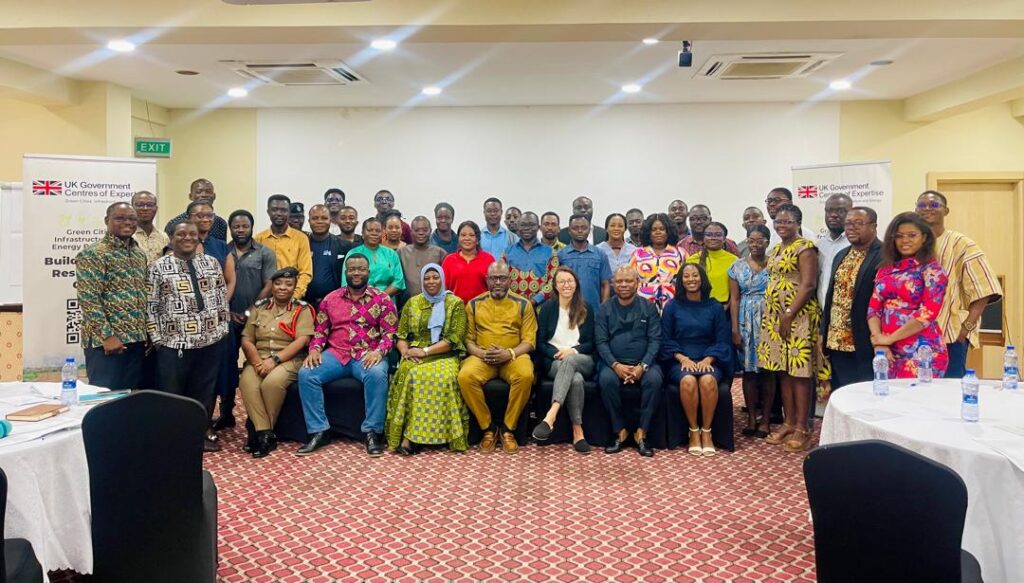- GCIEP Ghana and the Ministry of Local Government, Chieftaincy and Religious Affairs (MLGCRA) have jointly developed the first monitoring and evaluation framework for Ghana’s revised National Urban Policy.
- On 29 July 2025, 26 national institutions and assemblies gathered in Accra to validate the framework.
- The framework will now be finalised based on inputs from the validation workshop before being submitted to MLGCRA.

Ghana’s rapid population growth offers the country and its urban areas both opportunities for economic expansion and challenges related to infrastructure deficits, service delivery gaps, spatial inequality, environmental degradation and urban informality. These difficulties are compounded by a lack of disaggregated data to inform urban planning.
The expansion of urban centres and their evolving economic and spatial dynamics have led the government of Ghana to revise the National Urban Policy (NUP), which prioritises inclusivity, resilience and future-oriented policy. The revised NUP aligns with national development priorities and international commitments such as the Sustainable Development Goals, the New Urban Agenda and the African Union Agenda 2063.
GCIEP Ghana recently worked with the Ministry of Local Government, Chieftaincy and Religious Affairs (MLGCRA), with funding from the UK’s Foreign, Commonwealth and Development Office (FCDO), to develop the first monitoring and evaluation (M&E) framework to track 126 core indicators of Ghana’s revised NUP. The M&E framework provides practical and operational guidance to MLGCRA and its decentralised structures, including Regional Coordinating Councils and Metropolitan, Municipal and District Assemblies, enabling them to effectively monitor and report on the NUP.
On 29 July 2025, 26 national institutions and assemblies – including the Ghana Statistical Service, Ghana Meteorological Agency and Ghana Police Service – gathered in Accra to validate this framework. In her opening remarks, Magdalena Leisten Johansson, Infrastructure Adviser with FCDO, highlighted the importance for GCIEP of urban development and building resilient urban infrastructure. Joyce Angnayeli Eledi Kuusaana, a Land Use Planning Adviser at GIZ who participated in the workshop, described it as “very impactful,” praising “the level of engagement and contributions of the various stakeholders.”
The framework will now be finalised based on inputs from the validation workshop before being submitted to MLGCRA. Once adopted, it will greatly impact the implementation of the NUP, ensuring that urban policy progress is continuously tracked, analysed and communicated in a timely and transparent manner. Specifically, it will provide valuable oversight on:
- Performance tracking: monitoring progress against key performance indicators at various administrative levels.
- Transparency and accountability: ensuring that stakeholders at all levels have access to relevant, validated information.
- Strategic oversight: supporting evidence-based policy adjustment and decision-making.
- Knowledge sharing: Facilitating cross-sector learning and promoting the uptake of innovations in urban development practice.
The UK’s Green Cities, Infrastructure and Energy Programme is tackling climate change and extreme poverty by accelerating the delivery of sustainable green cities and climate-resilient infrastructure.
Published
06/08/25
